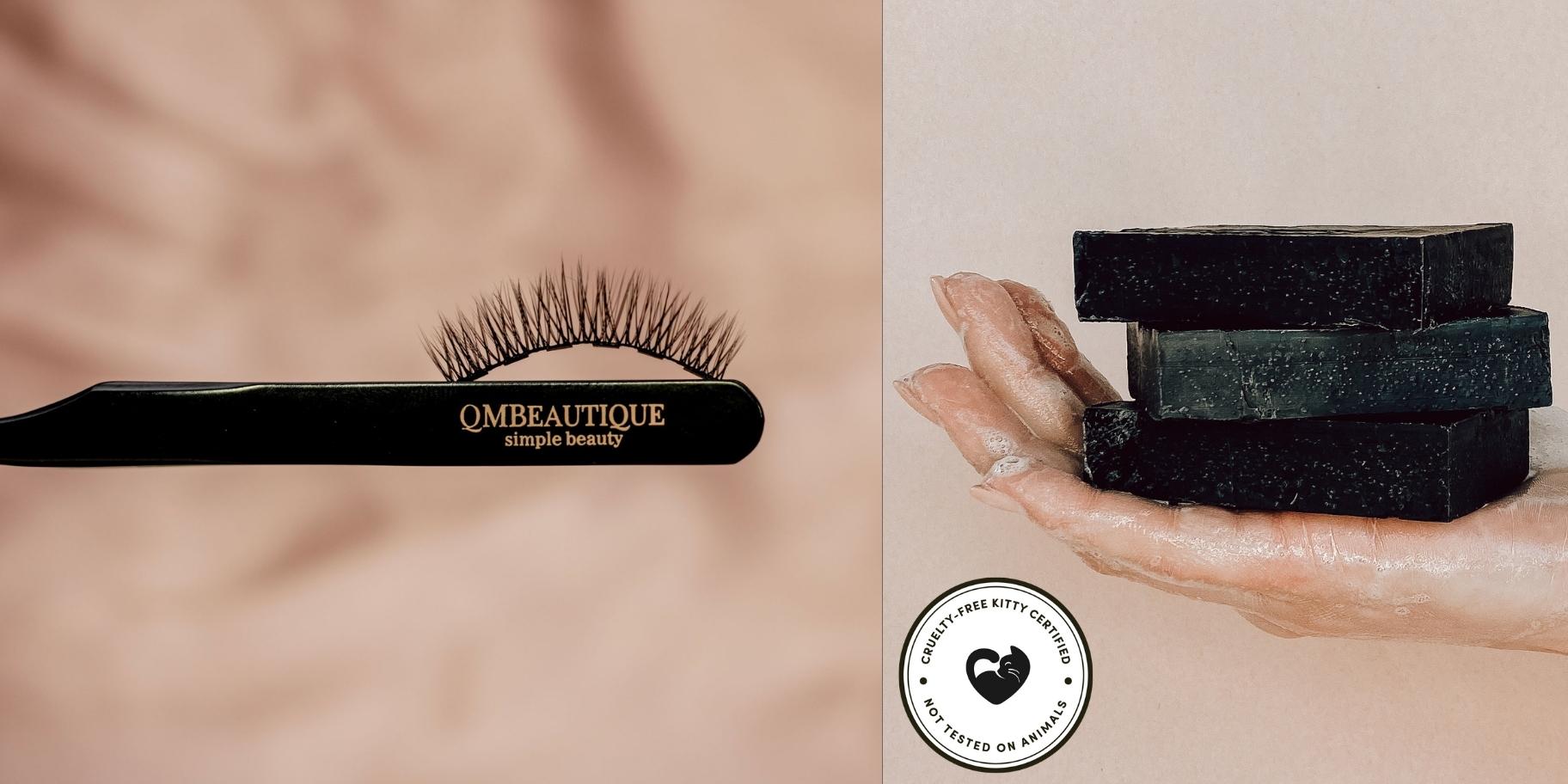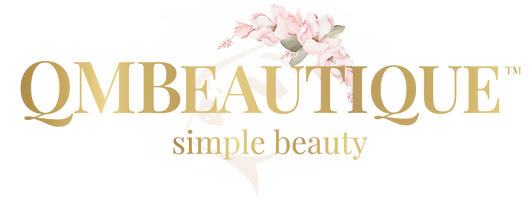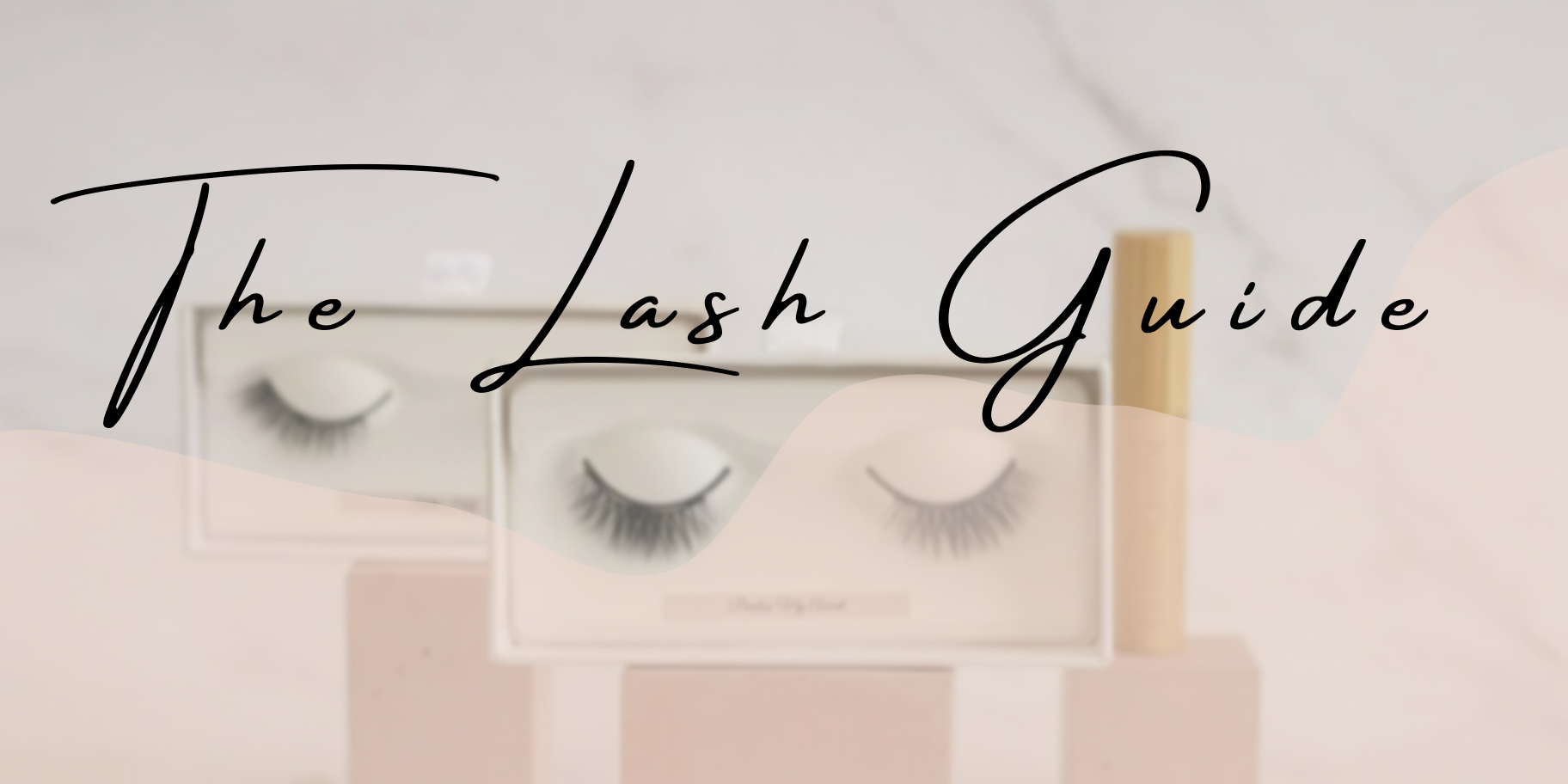These Ingredients aren’t in Our Clean Cosmetics & This is Why

For some brands, sustainability is a total sham, but you’d never know it. In fact, they’re counting on it. We’re not. Our goal in writing this clean beauty guide is to help you gain the confidence you need to recognize greenwashed products from sustainable ones.
People who prefer eco-friendly beauty products and clean cosmetics know a few things about sustainability. In many cases; however, 'the basics' falls short when it’s up against very suggestible marketing. ‘Green beauty’ is a vast topic. Advertisers, marketers, and product designers get paid a lot to blur the ethical and technical lines. And we’re not saying any of this because we’re the other, more sustainable brand. It’s a proven fact that even the most informed customers can still be misled by clever marketing.
Personally, we know when a bottle or some packaging says something along the lines of “doesn’t contain this” or “no…” then it’s tempting to assume it’s better for us. It isn’t that simple.
We wish it was that simple to shop sustainably.
Basically, "doesn't contain ingredients x,y, or z" isn't enough information. After all, some synthetic ingredients aren’t all that problematic and they serve incredibly valuable purposes. So we want to talk about ingredients and explain what it means for you when a label says it doesn’t contain this or that.
Ready to dig in and outsmart those misleading marketers?
To get you started let us ask you a question. Do you know what a paraben is? If not keep reading, we’ll explain and then you, our newly-informed customer, can come to your own conclusion.
Plus, all of the ingredients we're planning to discuss today have something major in common…our magnetic false eyelash adhesive and nourishing eyeliner don't contain any of them. That’s right, not a single one. Ultimately, our aim is to show that you don't need to use these ingredients that are harmful to you, the environment, or cause unnecessary suffering (such as animal testing.)
Why You Should Say No to Parabens
Remember when we asked if you knew what a paraben is? So if your answer was yes, skip this section. Good job, you clever consumer.

The short answer is parabens are preservatives, a series of acids, that can be placed in cosmetic and pharmaceutical products to extend shelf-life. Commonly used products easily expire, so parabens fix that. They get the job done so we can use our non-moldy products for longer. Longer; however, doesn’t directly translate into it being more beneficial for the body.
Here’s why we said NO to parabens in our products:
- Parabens negatively impact hormone production because they act like estrogen in your body, signaling it to do things it shouldn’t. Disruptions to sex hormones can cause fertility and birth complications or even breast cancer.
- Consistent application of paraben-containing products increases your sun sensitivity and makes ‘normal’ UV damage more severe. Too much UV damage can, of course, lead to skin cancer.
In the end, parabens don’t improve our quality of life or even our longevity. In fact, there’s a chance they shorten our life span.
Why Our Eyeliner Doesn’t Contain Phthalates
Ignore the 'Ph', phthalates are pronounced THAL-ates. If you’re wondering what this ingredient is, it’s not what you expect to be in your favorite beauty products— it’s a plasticizer. More specifically… it’s an ester of phthalic acid that increases durability. What a mouth full.

When it comes to cosmetics though it has a more specific purpose than increasing durability or transparency. In nail polish, hair products, body lotions, and perfumes, phthalates carry fragrances, make colors bolder, and enable other ingredients to blend more freely.
We don’t use phthalates in QMBeautique clean cosmetics because…
- Well for one it’s entirely unnecessary for us to rely on phthalates to intensify the color of our eyeliner. For intense color and a strong bond with lash strips, our magnetic ferroliner is made from synthetically prepared iron oxide.
- Phthalates are banned in many products used by children in the EU and Canada; however, in Canada (and The United States) there are no specific laws protecting users of cosmetics. Beauty brands are under no obligation to stop using phthalates in food packaging, cosmetics, paints, and many other products. It’s really unregulated. It is up to us, and other conscious companies, to decide whether these elements deserve to be present in our products. We don't believe they do.
- When it comes down to it, phthalates are just downright harmful. The effect of phthalates includes irritated airways and lungs. Using these products can also lead to damage to the liver, kidneys, thyroid, cancer, and reproductive system.
Next time you read through a product label, look for any of the following abbreviations to signal there are phthalates present: DBP, DINP, DEP, DEHP, DMP, BBP, DNOP, DIDP.
The Case Against PEGs in Clean Beauty
It's not that these are necessarily unsafe for you, the issue is that polyethylene oxide and polyoxyethylene (PEG)s are at high risk for contamination during processing.

As a by-product of ethoxylation (PEGs) production, contaminants such as 1,4 dioxane can be found in otherwise safe PEGs. And since PEGs aren't required to be strenuously tested at the necessary level to be risk-free, in this case, subject to additional refinement and purification, there’s no guarantee they are 100 percent safe, 100 percent of the time. So why use them?
The Harmful Effects of 1,4-dioxane and Ethylene Oxide
There are many reasons to be cautious when using 1,4-dioxane. It may cause cancer when it is gradually exposed to low levels. However, it may cause cellular damage to the kidneys, airways, and liver when it is exposed to high levels in a short period of time.
It is also susceptible to contamination by ethylene oxide. Sterilization of food and produce is often done with ethylene oxide. The problem is that when ethylene oxide is ingested or absorbed into the bloodstream, even in small amounts, it can harm you. Small amounts of exposure can cause irritation to the eyes, upper respiratory tract, central nervous system, and peripheral nervous system.
**A hypersensitive individual may experience a rash or hives as a result of an allergic reaction to PEGs.
Is Ethanolamine Safe? No Way!
Emulsifiers and foaming agents typically use ethanolamines for dissolving grease and oil from the skin. You'll find ethanolamines in your favorite household cleaners, too. While some claim that MEA, DEA, and TEA will not harm your health if formulated correctly, and immediately rinsed off, we prefer not to use them at all.

There is a substantial health risk associated with prolonged exposure to ethanolamines.
Research has linked ethanolamines to being potentially carcinogenic, potentially causing liver and kidney damage, and being toxic in a vaporous form. Not to mention soaking in products containing this ingredient can lead to dry, extra sensitive skin which is just really uncomfortable. Our big tip? Skip the bubble bath if this ingredient is on the label.
Synthetic Fragrances Have No Place in Eyeliner
While synthetic fragrances might have a lesser environmental impact, cause fewer allergic reactions, and be less expensive, they still come from petrochemicals. So while you don't need to switch to all-natural perfumes, keeping synthetic fragrances out of mascara, blush, soap, and eyeliner won’t hurt. This is one of those cases where synthetics aren’t necessarily a wrong choice, but more about thoughtful selection when formulating beauty products.

Petrochemicals have been linked to sinus issues, hormone disruption, and fertility issues: like damaged sperm count. They’re also carcinogenic. The thing is synthetic fragrances are an umbrella term, and often one that can hide undisclosed toxic ingredients.
Using synthetic fragrances for our clean beauty products is not necessary because petroleum-based ingredients pose a risk to your health. Furthermore, they are not needed for eyeliner. When our founder created the QMBeautique brand, she wanted to minimize the impact cosmetics have on our hormones and health.
Well-being shouldn't be sacrificed for beauty. To us, minimal beauty means not using ingredients that aren’t necessary.
Formaldehydes Cause Skin Irritation
Formaldehyde is a natural by-product of cellular metabolism, which occurs in all living organisms. But when it becomes an isolated compound extracted for use in cosmetics, that’s when it becomes problematic.
Irritation is the main concern with formaldehyde in cosmetics. Skin reactions or allergies may occur in sensitive individuals. So if your eyelash glue, hair gel, body soap, contour kit, or eyeshadow palette leaves your skin feeling stressed, check the label.
Formaldehyde is called by many names:

DMDM hydantoin, Imidazolidinyl urea, and Diazolidinyl urea release small amounts of formaldehyde over time to prevent bacteria from growing and spoiling cosmetics.
The Body Metabolizes BHT Even After Brief Use
Dibutylhydroxytoluene or butylated hydroxytoluene, commonly shortened to BHT, is used in various ways in the industry. But mainly the lab-made chemical protects product performance, keeping formulas stable and unchanging as they’re exposed to air during use.

This ingredient however is a health concern. Health Canada lists BHT as a moderate human health priority. Even small amounts are absorbed by the skin and then metabolized. It seems senseless to add more toxins to our body's already busy liver and kidneys. Short-term continuous use of BHT adversely affected renal and hepatic function in one lab study.
Health Concerns with BHA
BHA or butylated hydroxyanisole (similar to BHT, butylated hydroxytoluene) is a synthetic antioxidant used to preserve formulas. More and more products are focusing on BHA as the main ingredient because it’s a chemical exfoliant that helps remove dead skin cells.

In countries like the EU, Japan BHA is banned— however, it remains readily available in other countries. The presence of BHA is unrestricted in Canada; however, Health Canada classifies it as a high priority because it can cause cancer. It’s also linked to “reproductive and developmental toxicity.”
Sulfate Detergents are a No-No for Sensitive Skin
Think shampoo as well as laundry detergent. Sulfates are really effective at removing build-up, dirt, and all other bacteria with their frothing lather. Skin sensitivity is a concern with sulfate-containing products as they dry the skin out.

Avoiding sulfates can be beneficial for those who suffer from skin conditions such as eczema or contact dermatitis.
Aluminum Powder can be Replaced
It's another of those controversial ingredients. Numerous studies say aluminum powder in products is relatively safe, others say why risk it?
Some warn of an increase in “the potential for oxidative damage in the skin.”

We asked, is it necessary? Since we focus on crafting low-ingredient makeup we decided this one wasn’t needed. Aluminum powder in the first place is used as a thickening agent to prevent makeup from bleeding.
Our magnetic lashes are made from synthetic iron oxide that does not smear or bleed. Aluminum powder is not a necessity for our products to be long-lasting.
Animal-Derived Products
We’re strong believers in not causing unnecessary harm. We also pride ourselves on not using animal-derived products. This is so significant to us that in August of 2022 we were named Cruelty-Free Kitty Verified. Some of our products will even feature in their October 2022, subscription box. This was such a big deal for us. If you want to know why animal testing is completely unnecessary please continue reading this article: No Cosmetic Needs Tested on Animals to Prove It’s Safe.

All-in-all, each brand decides what ingredients to include in its formulas. There are no legally binding regulations that a beauty brand has to follow to say they’re eco-friendly or green. This is why greenwashing runs rampant in today’s marketing schemes, and according to recent studies, greenwashing sells.
Yikes. I mean how unfortunate is it that we buy something with genuine intentions to do better for the planet and ourselves, only to be misled? So, it’s up to you, our diligent customers to make sure a brand or product fits your values.




Comments